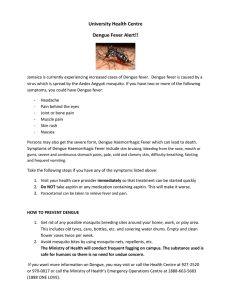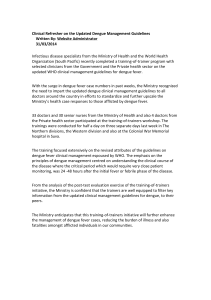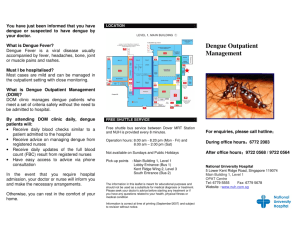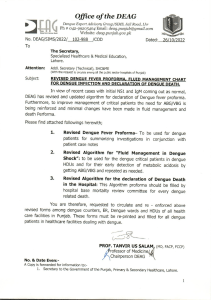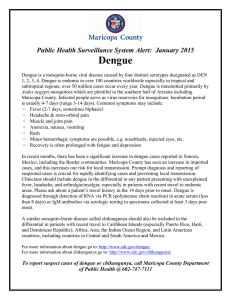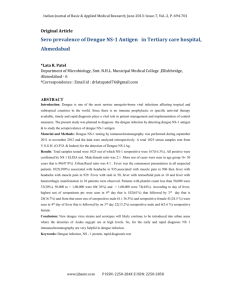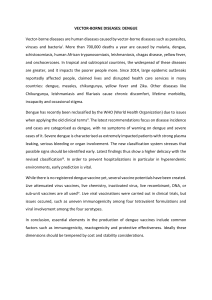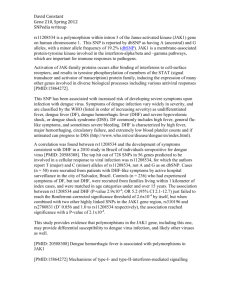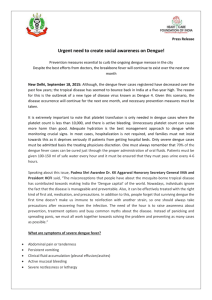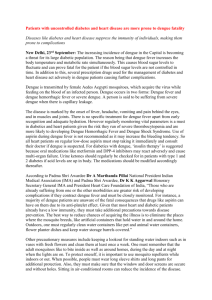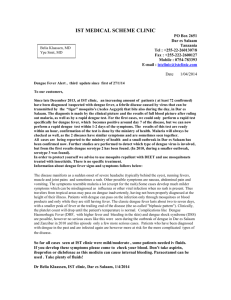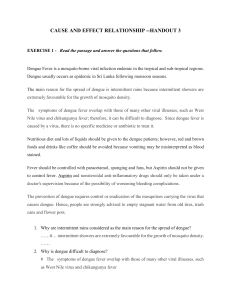Dengue can cause heart problems
advertisement
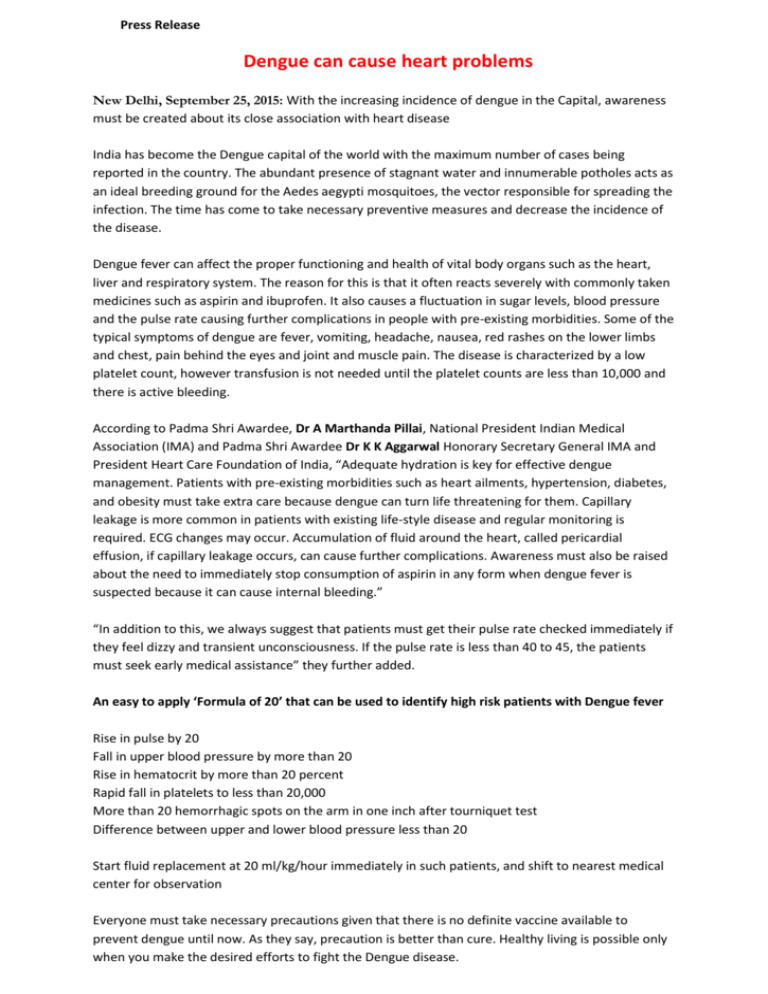
Press Release Dengue can cause heart problems New Delhi, September 25, 2015: With the increasing incidence of dengue in the Capital, awareness must be created about its close association with heart disease India has become the Dengue capital of the world with the maximum number of cases being reported in the country. The abundant presence of stagnant water and innumerable potholes acts as an ideal breeding ground for the Aedes aegypti mosquitoes, the vector responsible for spreading the infection. The time has come to take necessary preventive measures and decrease the incidence of the disease. Dengue fever can affect the proper functioning and health of vital body organs such as the heart, liver and respiratory system. The reason for this is that it often reacts severely with commonly taken medicines such as aspirin and ibuprofen. It also causes a fluctuation in sugar levels, blood pressure and the pulse rate causing further complications in people with pre-existing morbidities. Some of the typical symptoms of dengue are fever, vomiting, headache, nausea, red rashes on the lower limbs and chest, pain behind the eyes and joint and muscle pain. The disease is characterized by a low platelet count, however transfusion is not needed until the platelet counts are less than 10,000 and there is active bleeding. According to Padma Shri Awardee, Dr A Marthanda Pillai, National President Indian Medical Association (IMA) and Padma Shri Awardee Dr K K Aggarwal Honorary Secretary General IMA and President Heart Care Foundation of India, “Adequate hydration is key for effective dengue management. Patients with pre-existing morbidities such as heart ailments, hypertension, diabetes, and obesity must take extra care because dengue can turn life threatening for them. Capillary leakage is more common in patients with existing life-style disease and regular monitoring is required. ECG changes may occur. Accumulation of fluid around the heart, called pericardial effusion, if capillary leakage occurs, can cause further complications. Awareness must also be raised about the need to immediately stop consumption of aspirin in any form when dengue fever is suspected because it can cause internal bleeding.” “In addition to this, we always suggest that patients must get their pulse rate checked immediately if they feel dizzy and transient unconsciousness. If the pulse rate is less than 40 to 45, the patients must seek early medical assistance” they further added. An easy to apply ‘Formula of 20’ that can be used to identify high risk patients with Dengue fever Rise in pulse by 20 Fall in upper blood pressure by more than 20 Rise in hematocrit by more than 20 percent Rapid fall in platelets to less than 20,000 More than 20 hemorrhagic spots on the arm in one inch after tourniquet test Difference between upper and lower blood pressure less than 20 Start fluid replacement at 20 ml/kg/hour immediately in such patients, and shift to nearest medical center for observation Everyone must take necessary precautions given that there is no definite vaccine available to prevent dengue until now. As they say, precaution is better than cure. Healthy living is possible only when you make the desired efforts to fight the Dengue disease. The best way to reduce chances of getting the infection is to eliminate the places where the mosquito lays her eggs, like artificial containers that hold water in and around the home. Outdoors, one must regularly clean water containers like pet and animal water containers, flower planter dishes and keep water storage barrels covered.
